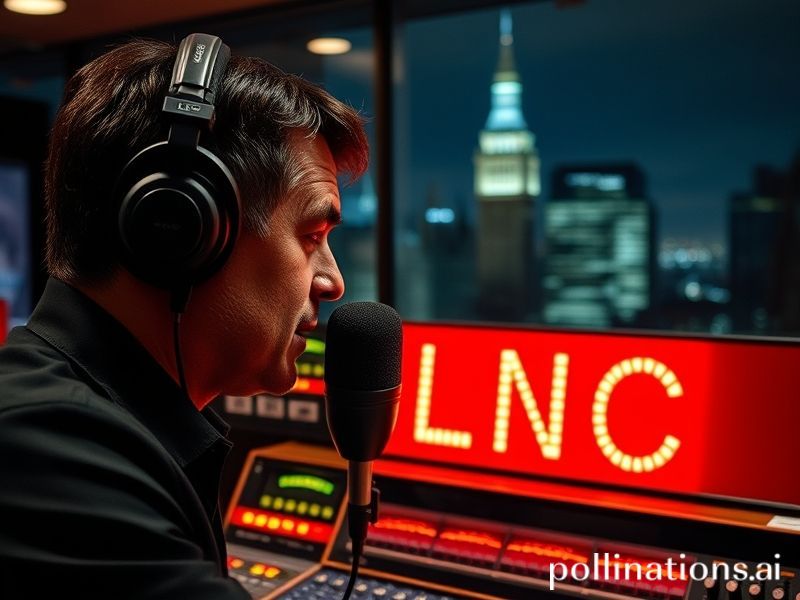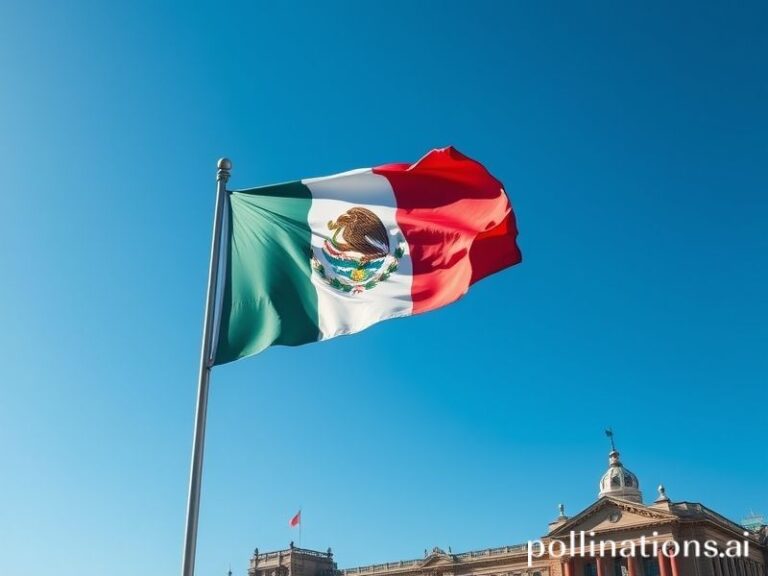London’s Talking: How LBC Radio Became the World’s Favorite British Train Wreck
**The Empire Strikes Back… on AM: How a London Talk Station Became the World’s Background Noise**
In the grand theater of global media, where Netflix spends more on a single episode than some nations spend on healthcare, there’s something almost quaint about LBC Radio still rattling the airwaves from a former chocolate factory in Battersea. Yet this plucky British talk station—once shorthand for “London Broadcasting Company” but now rebranded as the more aspirational “Leading Britain’s Conversation”—has become an unlikely player in the international game of influence, misinformation, and the peculiar British art of shouting politely.
While Silicon Valley giants frantically fact-check and moderate, LBC operates with the refreshing honesty of a pub argument that’s been accidentally broadcast to 3.2 million people. The station’s global significance lies not in its reach—though it’s syndicated from Australia to Abu Dhabi—but in its role as a living museum of British dysfunction, a daily soap opera where democracy works itself into a lather before teatime.
Take Nigel Farage, the station’s most famous export, who parlayed his LBC show into a transatlantic bromance with Donald Trump. Here we had a man who’d failed seven times to become an MP, hosting a radio show that somehow influenced Brexit, which in turn helped elect an American president who thought Belgium was a city. It’s like watching a Rube Goldberg machine where the final prize is global instability and everyone gets a commemorative tea towel.
The station’s influence peaked during the pandemic, when government ministers treated it like a confession booth with better ratings. Health Secretary Matt Hancock broke major policy announcements on LBC before Parliament heard them—a move that would make authoritarian leaders blush, if they weren’t too busy taking notes. Meanwhile, callers from Glasgow to Gibraltar phoned in with medical advice that would make a Victorian barber wince, creating a symphony of national delusion that played out in real-time across the airwaves.
But LBC’s real genius lies in its business model: it’s monetized the British compulsion to complain about everything while secretly loving the chaos. Where else could you find a taxi driver from Croydon debating nuclear policy with a Russian oligarch’s former bodyguard, moderated by a presenter who’s clearly one more early morning away from a nervous breakdown? It’s democracy as performance art, with commercial breaks.
Internationally, LBC serves as both warning and inspiration. European stations study its format like scientists examining a particularly virulent strain of populism. American networks, never ones to miss a monetization opportunity, have created their own versions—though they lack the crucial British ingredient of passive-aggressive sarcasm that makes shouting about bin collections feel like Shakespeare.
The station’s digital transformation has been equally telling. While the BBC wrestles with imperial guilt and funding crises, LBC has simply uploaded its particular brand of controlled national hysteria to YouTube, where clips of people arguing about parking regulations rack up millions of views from confused Americans who think they’re watching British reality TV. “Wait,” comments someone from Ohio, “this is just their normal conversations?”
As we hurtle toward an uncertain future of AI presenters and algorithmic outrage, LBC remains stubbornly human—a station where someone can still phone in at 3 AM to argue about the philosophical implications of roundabouts. In a world of polished podcasters and corporate-approved opinions, there’s something almost heroic about its commitment to glorious, unfiltered chaos. It’s the audio equivalent of that one house on the street that still hasn’t fixed their Christmas lights from 2019, blinking away into the night, a beacon of beautiful British dysfunction that the world can’t help but watch through its fingers.







